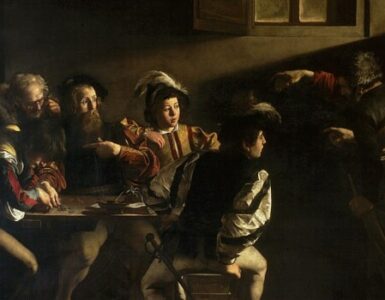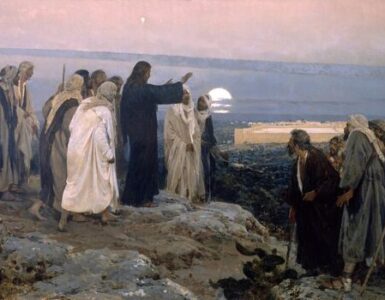The Golden Threads of Catholic Learning
I recently had the chance to chat with Mark Brumley, the current President of Ignatius Press, about the deep importance of a Catholic education. Mark is passionate about making sure a Catholic education goes beyond just memorization. It’s about shaping individuals who can navigate life with a strong sense of faith, purpose, and moral integrity which comes hand in hand with developing a deep knowledge and understanding of the faith.
He described a unique approach which centers around four key themes (called “golden threads”) for communicating and interpreting our faith to younger generations: Salvation History, Christian Anthropology, Heroic Virtue and Character Formation, and Learning Through Discipleship. These themes come together to create a cohesive educational journey that aligns with Catholic Social Teaching and helps develop well-rounded individuals.
Salvation History: The Divine Storyline
First up is Salvation History, the thread that grounds students in the big story of God’s relationship with humanity. It’s a wonderful starting place—looking at the broad narrative of God’s presence and actions throughout history, from creation all the way to Jesus. Knowing this divine narrative helps students see their lives as part of a greater story.
Mark explained that understanding this historical perspective is crucial. By learning about the events and people of Sacred Scripture and the lives of the Saints, students get a clear sense of God’s consistent and loving presence in the world in a very human way. This knowledge gives them a sense of belonging and purpose, which is essential for personal growth and spiritual development.
Christian Anthropology: Understanding Who We Are
Building on Salvation History, Christian Anthropology dives into the true identity of the human person. What does it mean to be human? What does it mean to be a child of God? This theme tackles big questions about who we are, including our dignity which stems from and is destined for God.
Mark emphasized how understanding human nature from a Catholic viewpoint is key to fostering respect and compassion. This perspective helps students appreciate the sacredness of life and the importance of human relationships. It also challenges them to think about their responsibilities towards others, promoting a culture of solidarity and care that’s central to Catholic Social Teaching.
Heroic Virtue and Character Formation: Living Out the Faith
Next, we have Heroic Virtue and Character Formation. This theme builds on what students learn from the prior threads of Salvation History and Christian Anthropology and encourages them to live out morals and virtues in their daily lives. By showcasing the lives of Saints and other role models, this thread inspires students to aim high in their own lives.
According to Mark, the stories of saints are powerful tools for moral and spiritual education. These narratives provide concrete examples of living out virtues like faith, hope, charity, and justice. They also show the transformative power of grace and the possibility of achieving holiness in everyday life. By cultivating these virtues, students develop strong moral characters and a deep commitment to their faith.
Learning Through Discipleship: Putting Faith into Action
The final thread, Learning Through Discipleship, focuses on the practical application of faith through service, evangelization, and integrating Catholic values into every aspect of life. It teaches students that faith isn’t just a private matter but something to be lived out publicly and courageously.
Mark highlighted that discipleship means following Christ’s example and being a witness to His love and truth in the world. This involves not just personal piety but also active participation in the community and society at large. Through acts of service and evangelization, students learn to practice their faith and contribute positively to the common good, thus stepping out of the mentality of self-interest. This engagement with the world reflects the Catholic Church’s call for a just and compassionate society.
Weaving the Golden Threads Together: Developing the Whole Person
This unique approach to an educational framework aligns perfectly with Catholic Social Teaching, which emphasizes the development of the whole person. Learning isn’t just undertaken for oneself or one’s profit. It is undertaken as an individual to recognize our own place in the Body of Christ.
By integrating these golden threads into education, students are equipped not just with knowledge but also with character and faith which gives them meaning and purpose. They learn to see themselves as part of a larger story, appreciate their inherent dignity, strive for moral excellence, and actively engage with the world around them.
Mark’s insights highlight the transformative power of a solid Catholic education. By weaving together Salvation History, Christian Anthropology, Heroic Virtue and Character Formation, and Learning Through Discipleship, Catholic education provides a comprehensive framework that nurtures the mind, heart, and soul of each student. This integrated approach prepares students not only for academic success but also for a life of faith, service, and witness, fully embracing the call to be disciples of Christ in today’s world.
Nurturing an educational and formative approach that is different from the modern secularist mindset is challenging, but my interview with Mark highlighted that not only can it be done—it can be done well, kept interesting and informative, and strive to bring each and every student to a point of excellence and moral achievement.
Photo by Susan Q Yin on Unsplash










